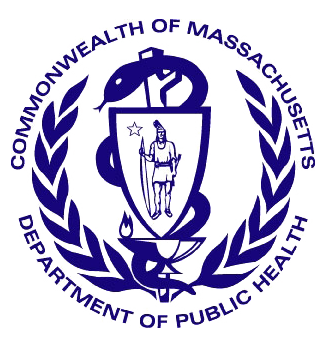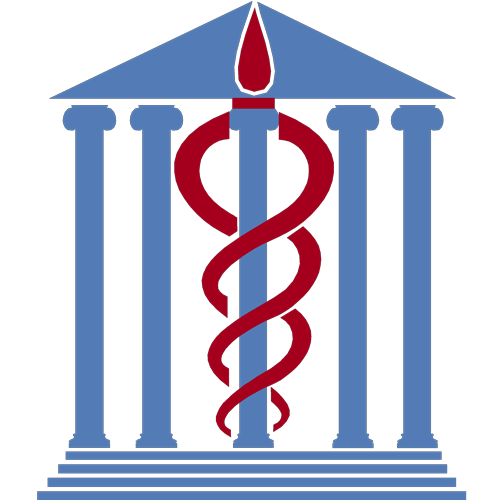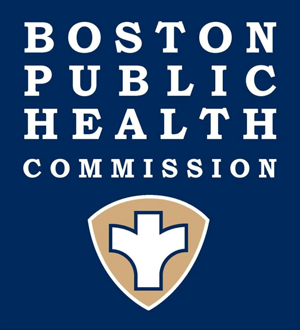Public Resources
Public Resources
MANAGING RESPONSES TO EMERGING INFECTIOUS DISEASES: PAST, PRESENT, FUTURE[edit]
Back to Topic Menu
The cross-disciplinary educational series Managing Response to Emerging Infectious Diseases: Past, Present, Future, focused on planning for and responding to emerging and re-emerging infectious disease threats, with the overarching goal of raising awareness of roles across disciplines. The target audience for this training series included the five core public health and healthcare disciplines (community health centers, emergency medical services, long term care facilities, hospitals, and public health).
The series was delivered from July through September, 2016 and consisted of three webinars, followed by the in-person Live Session. The live session was held three times: in Burlington on September 13, 2016, in Easton on September 20, 2016, and in Holyoke on September 30, 2016. The final report summarizes the participant feedback gathered in the live sessions. Links to the three webinar archives are listed below, along with the videos recorded at the live sessions.
Webinar Recordings[edit]
Webinar Description:
When a new disease presents itself, public health and healthcare workers must respond while facing challenges beyond what is involved in traditional infectious disease management. The unique challenges of emerging infectious diseases include an increased need for trust and communication with the public, personal protective measures, and collaboration with colleagues across agencies and disciplines. New diseases often cause an amount of fear and miscommunication, due to the unknown aspects of the disease, and changing guidelines as we learn more about it. Each time we see a new disease, or the reemergence of an old one, it can feel as if we are learning anew. Yet, there are sound practices that we have learned over time relating to both protecting responder health and safety and managing the system-wide response.
What are the common themes that occur repeatedly with EID response? Although EID’s come with a number of unknowns, what evidence-based practices can we turn to that we are certain are effective? This webinar will introduce these challenges and review foundational concepts that will be expanded upon for the remainder of the training series.
Learning Objectives:
By the conclusion of this course, the learner will be able to:
- Define the term “emerging infectious disease” used in this training series and provide examples
- Discuss the unique impacts of EID’s
- Recall reasons why recommended protective measures are effective for infection control
- Discuss key challenges of an effective public health and healthcare response to an EID outbreak
- Summarize key concepts related to the management of EID response
Speakers:
Alfred DeMaria, Jr., M.D.
Medical Director, Bureau of Infectious Disease Prevention,
Response and Services
Massachusetts Department of Public Health
M. Anita Barry, MD, MPH
Director, Infectious Disease Bureau
Boston Public Health Commission
Mea E. Allen
Associate Director, Education & Training
Office of Public Health Preparedness
Boston Public Health Commission
Recording:
Webinar Description:
As with any type of hazard, it is imperative that we draw upon experience from past outbreaks to build collective wisdom and foster continual improvement. With emerging infectious diseases, this is particularly challenging given that such outbreaks often occur years apart and in distant communities all over the world.
This webinar will examine best practices and weaknesses uncovered from EID response efforts in recent decades, such as the SARS outbreak in 2003, the 2009 H1N1 pandemic, and Ebola, among others. Participants will learn how EID response efforts from our recent past can be applied to better prepare us to respond to future EID epidemics.
Learning Objectives:
By the conclusion of this course, the learner will be able to:
- Describe the role that prior EID outbreaks play in helping us to plan for and respond to EID outbreaks today and in the future
- Recall factors that have contributed to outbreaks of EIDs in the last 30 years
- Summarize the lessons learned from historical EID response efforts
- Explain how lessons learned from historical EID response efforts can be applied to address current EID risks in Massachusetts
Speakers:
Jeffrey K. Griffiths, MD, AB, MPH&TM
Professor of Public Health, and of Medicine
Tufts University
Mea E. Allen, MS
Associate Director, Education & Training
Office of Public Health Preparedness
Boston Public Health Commission
Ashley Miller, MPH
Emergency Preparedness Educator
Office of Public Health Preparedness
Boston Public Health Commission
Recording:
Webinar Description:
In September 2014, the first Ebola patient in the US was diagnosed in Dallas. From the day of that diagnosis, and for weeks afterward, public health, healthcare, and EMS agencies in Dallas County were working in a context very different from the day-to-day routine. Join us for a look behind the scenes of the multi-agency response, including how lessons observed in 2014 are informing planning and response actions today.
Learning Objectives:
By the conclusion of this course, the learner will be able to:
- State the purpose of the webinar
- Summarize the initial actions upon confirmed diagnosis of Ebola, and ongoing considerations for a collaborative response from public health and EMS, and other healthcare agencies
- Describe key lessons observed from the EMS and public health perspectives during the response to and recovery from this incident
- Discuss how lessons observed from this incident may inform planning and response actions in future incidents impacting one’s own agency
- Summarize webinar key messages and complete the webinar evaluation
Speakers:
Wendy Chung, MD
Chief Epidemiologist, Dallas County Health and Human Services
Marshal Isaacs, MD, FACEP
Medical Director, Dallas Fire-Rescue Department
Norman Seals
Assistant Chief, Emergency Medical Service Bureau, Dallas Fire-Rescue Department
Dr. Sophia Dyer, MD, FACEP
Medical Director, Boston EMS, BPD, BFD
Mea E. Allen, MS
Associate Director, Education & Training
Office of Public Health Preparedness
Boston Public Health Commission
Recording
EID Live Session [edit]
Videos from the EID Live Sessions can be viewed below.
To view the entire collection on Vimeo, please click here.
Welcome and Opening Remarks
[edit]
Distinguished Speaker Lecture
September 13, 2016 | September 20, 2016 | September 30, 2016 |
The Future of Response to Emerging Infectious Diseases by Dr. Paul Biddinger, MD, FACEP | Emerging and Re-Emerging Infectious Diseases: Murphy is an optimist by John Murray, CHMM, CSP, CIH |
Responding Together as a Healthcare System
September 20, 2016 | ||
Responding Together as a Healthcare System by Mea Allen |
Panelist Presentations
September 13, 2016 | ||||
PUBLIC HEALTH Partners in communication: Unifying our message during the Ebola outbreak by Stacey Kokaram, MPH, Boston Public Health Commission | HOSPITALS Staff health and safety issues in the care of a pediatric patient with suspected Ebola by Dr. Shira Doron, MD, FIDSA, Tufts Medical Center | COMMUNITY HEALTH CENTERS Ebola Preparedness Communication Plan by Bernadette Thomas, APRN, DNP, MPH, Lynn Community Health Center | EMERGENCY MEDICAL SERVICES Big Bad Bugs: Handling Infectious Disease Patients in the Pre-Hospital Environment by Deputy Superintendent Susan Schiller, NRP, Boston EMS | LONG TERM CARE H1N1 Response in the Nursing Home by Sakhonh Kheuamun, Hebrew SeniorLife |
September 20, 2016 | ||||
PUBLIC HEALTH A Multi-Disciplined Approach for Planning Emerging Infectious Diseases by Sean O’Brien, Deputy Director, Barnstable County Department of Health and Environment | HOSPITALS Emerging Infectious Disease Response: Hospital Perspective by Sheila Wallace, BSN, BA, MA, CHPA, CHC, Steward Health Care | COMMUNITY HEALTH CENTERS How Large Ambulatory Care Practices Can Contribute to EID Response by Linda Foote, PhD, Atrius Health | EMERGENCY MEDICAL SERVICES EMS Response to Managing High Risk Infectious Patients by David Faunce, EMT-P, Southeastern MA EMS Council | |
September 30, 2016 | ||||
PUBLIC HEALTH A Local Public Health Perspective to Managing Public Information by Colleen Bolen, MPH, Worcester Division of Public Health | HOSPITALS Hospital Role in Integrated Planning and Response by Lucy Britton, BS, RN, Berkshire Medical Center | COMMUNITY HEALTH CENTERS Public Information Challenges for Community Health Centers by Carrie Matusko, RN, Holyoke Health Center | EMERGENCY MEDICAL SERVICES The EMS Challenge Transporting the High Risk Infectious Patients by Brian Andrews, EMT-P, County Ambulance |
Panelist Q&A
Best Practices | |||
What is something you’ve seen done right, in your agency or region, with respect to EID response? | What other responses or outbreaks have you examined to learn how to improve your EID preparedness? |
|
|
Guidance | |||
During previous EID outbreaks such as Ebola and Zika, how do we follow what may be differing guidance between local, state, and federal partners? | How do you make sure that you are able to learn about new guidance or a changing situation during an EID response so that you can rapidly update your plans and procedures? | With the upcoming flu season, have there been any changes to guidance or suggestions to do anything differently? | |
| |||
Information Sharing/ Communication | |||
During an EID response, what tips can you share regarding making sure that the correct information gets to the correct people? | [edit] | ||
Staff Management | |||
What issues did you find you were able to address regarding staff sharing and managing staffing needs during an EID outbreak? | |||
Session 1 | |||
Preparedness | |||
We fall into a pattern of putting resources and attention into EIDs of the moment, then forgetting about them to focus on other emergencies until the next EID emerges. How do we break this cycle to maintain our preparedness to EIDs? | With healthcare organizations understaffed due to downsizing and part-time or volunteer staff on local boards of health, how do we make time for training, drills, and preparedness planning? | ||
Training | |||
Are you continuing the same level of EID training for staff compared to what you did during the Ebola response? | |||
Session 2 | |||
Partnerships | |||
Some response roles, such as contact tracing, span multiple disciplines. How do we map out these key roles and responsibilities so that we can increase our capacity by cross-covering various response functions? | Who are some unusual players you have found important to include in your partnerships during an EID response? | ||
 The DelValle Institute for Emergency Preparedness is the Education & Training branch of the Office of Public Health Preparedness. In conjunction with Boston EMS, a bureau of the Boston Public Health Commission, the DelValle Institute provides high-quality all-hazards training and exercises to develop and enhance capabilities-based preparedness. This course is supported by the Massachusetts Department of Public Health (MDPH) through the Boston Public Health Commission Office of Public Health Preparedness, with funding from The U.S. Centers for Disease Control and Prevention (CDC) Public Health Emergency Preparedness Cooperative Agreement. For more information regarding DelValle Institute funding, please visit the funding page on delvalle.bphc.org.
The DelValle Institute for Emergency Preparedness is the Education & Training branch of the Office of Public Health Preparedness. In conjunction with Boston EMS, a bureau of the Boston Public Health Commission, the DelValle Institute provides high-quality all-hazards training and exercises to develop and enhance capabilities-based preparedness. This course is supported by the Massachusetts Department of Public Health (MDPH) through the Boston Public Health Commission Office of Public Health Preparedness, with funding from The U.S. Centers for Disease Control and Prevention (CDC) Public Health Emergency Preparedness Cooperative Agreement. For more information regarding DelValle Institute funding, please visit the funding page on delvalle.bphc.org.

